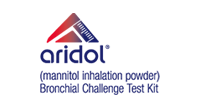Gratitude and Physical Health

November is a time of acknowledging the people, events, and gifts for which we are thankful. Gratitude is more than simply giving thanks. The power of gratitude affects our lives in many ways. It has been demonstrated that feeling and expressing gratitude increases our social and emotional well-being, it promotes better sleep, helps lower the risk of depression, improves markers of cardiovascular health and may contribute to longevity.
Drawing from the Nurses’ Health Study, JAMA Psychiatry published observational data in 2024 from 49,275 enrolled women. In 2016, participants completed a six-item questionnaire on gratitude. By 2020, researchers reviewed medical records to determine mortality outcomes. Over four years, there were 4,608 all-cause deaths, including those from cardiovascular disease, cancer, and respiratory diseases. The study found that participants in the top third for gratitude had a 9% lower risk of death compared to those in the bottom third. While the authors note that this 9% reduction is meaningful, it is not considered “huge,” and the underlying reasons for the association between gratitude and longevity remain unclear. The study’s limitations include its focus on older women (average age 79), higher socioeconomic status, and a predominantly white sample. Although the large sample size is a strength, males were not included, so it is unknown whether these effects extend to men. 1, 2
A systemic review on gratitude reports that practicing gratitude consistently shows benefits psychologically with the benefits on physical health being mixed. This review included 19 articles. It showed sleep quality improved in 5/8 of the studies. Additionally, there were improvements in blood pressure, asthma control, eating and glycemic control. These last factors are understudied but did show improvement with gratitude interventions. Areas of mixed outcomes were inflammatory markers and improvement in physical symptoms.3
Do gratitude interventions vary culturally? A 2025 meta-analysis looked at gratitude effectiveness on well-being across cultures. In reviewing gratitude interventions across cultures, the findings were that these practices result in small increases in well-being and the effectiveness varied between countries. Looking at data from 145 papers, the analysis showed significant differences between countries as far as the effects of utilizing gratitude interventions.4
Deciding which gratitude interventions to use and which are most effective is an individual preference. Gratitude is both a trait and a state. Feeling grateful and appreciating a positive outcome is gratitude as a state. Having a predisposition to noticing and appreciating the world in a positive manner is a trait. 3 Journaling gratitude for 21 days resulted in lower levels of reported burnout in a study of healthcare professionals.5 Generally, gratitude interventions are simple, easy to implement and do not cost much if anything. Creating a gratitude list is a short, simple intervention. Listing as few as three items daily for which one feels grateful for can be beneficial. Hand-writing a thank you letter or note to someone who has impacted your life in a positive way benefits you, the writer, and the recipient. Taking a walk with the intention of observing the things around you and finding appreciation in nature is another gratitude intervention which is simple and does not cost anything.
Most of the research on the benefits of gratitude interventions has focused on mental health benefits. More information is needed on the benefits of gratitude interventions and physical health. In the current healthcare landscape, it would be beneficial to have multiple tools, both pharmaceutical and lifestyle, to address common-chronic diseases. According to the American Heart Association between 2017-2020, 127.9 million adults had some form of heart disease. That is almost 50% of US adults. The total costs were $417.9 billion.6 To address heart disease, one review looked at gratitude interventions and cardiovascular disease outcomes (CVD). In this review, it was shown that gratitude therapy was independently related to lowering the risk of CVD and was considered beneficial in slowing the progression. Gratitude may affect CVD in a variety of ways including reducing inflammatory markers, facilitating healthy lifestyle behaviors, and improving sleep quality.7 This is not a simple or straightforward topic. There is need for further research on the benefits gratitude interventions have on physical health outcomes. Meanwhile, counting our blessings costs nothing, does not take much of time, does not require special training, and can be done anywhere!
Heather Murgatroyd, BA, RRT, CPFT, AE-C
Senior Clinical Specialist
Methapharm Respiratory
References
- Chen, Y., Okereke, O. I., Kim, E. S., Tiemeier, H., Kubzansky, L. D., & VanderWeele, T. J. (2024). Gratitude and mortality among older US female nurses. JAMA Psychiatry, 81(10), 1030–1038. https://doi.org/10.1001/jamapsychiatry.2024.1687
- Harvard Health. (n.d.). Gratitude enhances health, brings happiness — and may even lengthen lives. Retrieved from https://www.health.harvard.edu/
- Boggiss, A. L., Consedine, N. S., Brenton-Peters, J. M., Hofman, P. L., & Serlachius, A. S. (2020). A systematic review of gratitude interventions: Effects on physical health and health behaviors. Journal of Psychosomatic Research, 135, 110165. https://doi.org/10.1016/j.jpsychores.2020.110165
- Choi, H., Cha, Y., McCullough, M. E., Coles, N. A., & Oishi, S. (2025). A meta-analysis of the effectiveness of gratitude interventions on well-being across cultures. Proceedings of the National Academy of Sciences of the United States of America, 122(28), e2425193122. https://doi.org/10.1073/pnas.2425193122
- Tully, S., Tao, H., Johnson, M., Lebron, M., Land, T., & Armendariz, L. (2023, September 24). Gratitude practice to decrease stress and burnout in acute-care health professionals. OJIN: The Online Journal of Issues in Nursing, 28(3).
- Martin, S. S., Aday, A. W., Allen, N. B., et al. (2025). Heart disease and stroke statistics: A report of US and global data from the American Heart Association. Circulation. Advance online publication.
- Wang, X., & Song, C. (2023, September 21). The impact of gratitude interventions on patients with cardiovascular disease: A systematic review. Frontiers in Psychology, 14, 1243598. https://doi.org/10.3389/fpsyg.2023.1243598








